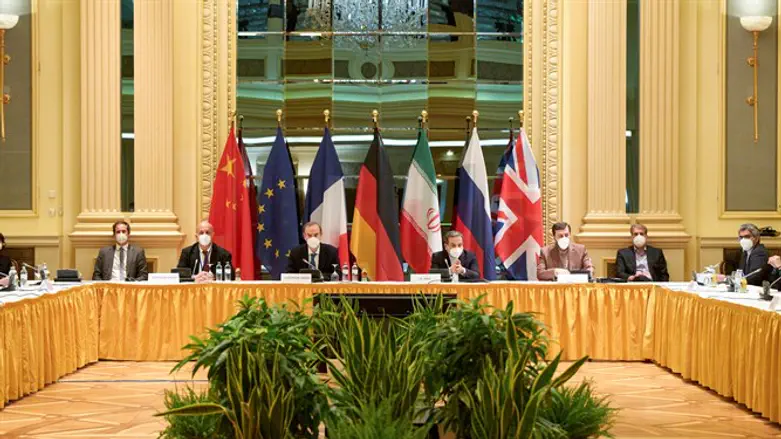
The Biden administration “can’t wait forever” for Iran to decide it wants to restart talks on returning to the 2015 nuclear deal, the top US envoy for the negotiations, Robert Malley, told Bloomberg Television on Friday.
Malley told the network that the US still hasn’t received any indication that Iran’s new president, Ebrahim Raisi, is prepared to commit to a seventh round of talks to come back into compliance with the deal, known as the Joint Comprehensive Plan of Action.
“We can’t wait forever as Iran continues its nuclear advances because at some point their advances will be such as to make a return to the JCPOA much less valuable to the US than it would otherwise be,” Malley told Bloomberg, although he added that the US was “prepared to be patient.”
“But let’s not drag this on for too long because some point, we’ll have to reach a different conclusion,” he added.
Iran has gradually scaled back its compliance with the 2015 deal in response to former US President Donald Trump’s withdrawal from the agreement in May of 2018, but current President Joe Biden wants to bring Washington back into the agreement.
In April, Iran and the five other remaining parties to the deal -- Britain, China, France, Germany and Russia, began talks in Vienna on a return to the deal. The United States also takes part in the talks but has no direct contact with Iran.
The negotiations were adjourned on June 20, two days after Raisi won Iran's presidential election, and no date has been set for a resumption of dialogue.
Iran had demanded that the US lift all sanctions that were imposed under the Trump administration as a condition for resuming compliance with the deal. The US has said Iran needs to abandon its nuclear work as a condition to get sanctions relief.
Iran’s Foreign Minister, Hossein Amir-Abdollahian, indicated this week that the stalled talks will likely not resume for another two to three months.
"We are not seeking to flee the negotiation table and the... government considers a real negotiation is a negotiation that produces palpable results allowing the rights of the Iranian nation to be guaranteed," he said.
US officials recently said that if diplomacy fails, the US will consider using other means to prevent Iran from obtaining a nuclear weapon, though they not specify what exactly the administration would consider.
(Arutz Sheva’s North American desk is keeping you updated until the start of Shabbat in New York. The time posted automatically on all Arutz Sheva articles, however, is Israeli time.)